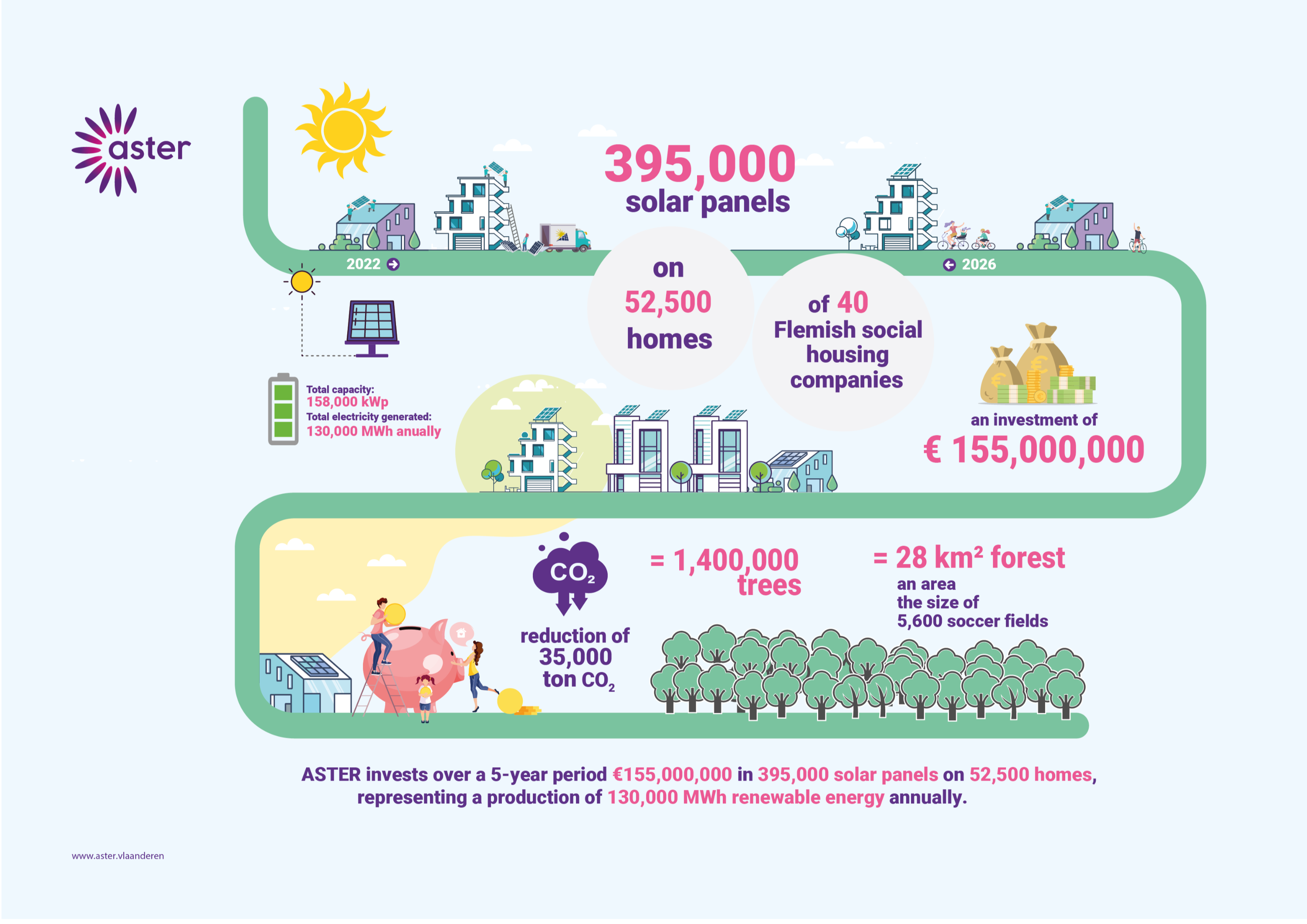How to fight energy poverty while meeting climate goals: free solar for social housing
Article by Sven Van Elst, General Manager ASTER & Maarten Michielssens, Founder and Chief Executive Officer EnergyVision for World Economic Forum (WEF)
Sustainable living is about much more than an affordable home; it is also about having access to affordable clean energy. Social tenants often do not have the financial resources to invest in renewable energy themselves. And in the Flanders region of Belgium, social tenants are not allowed to make structural changes to their homes and to invest themselves in solar panels or heat pumps. After all, they are not the owner of the house; the owner is the housing company.
In order to reduce the energy costs of social tenants, the Belgian government introduced a heavily subsidized system, called “social tariff”. The difference between that tariff and the market price is subsidized by the government. Yet in times of energy crises, this soaks up huge amounts of the government’s budget.
That’s why the Flemish social housing companies turned things upside down. In 2020, they founded the cooperative company ASTER (short for “Access to Sustainability for Tenants through Energy Effective Retrofit”). The objective of the company is to support and unburden the social housing companies in every possible way in making the 180,000 social rental homes in Flanders more sustainable by installing solar panels.
And if this project shows that it works for 180,000 homes, it could also work for 500,000 or even 5 million homes: the model is easily scalable. As such, it is something other regions or countries could easily replicate, bringing immediate returns, huge social benefits, and all with no government budget requirements at all. Already, EnergyVision received information requests from Senegal and from Morocco, while ASTER has spoken with the European Commission and at housing conferences in Spain and elsewhere.
Harnessing the sun for free
In the first phase of this project, the Flemish social housing sector will invest with ASTER over a period of five years (2022 – 2026) approximately €155 million in private and its own resources for the installation of 395,000 solar panels on 52,500 social rental homes for free. EnergyVision builds them, ASTER owns them – the tenants don’t have to pay for the installation, only for the energy they consume when the sun is shining. So, these households, which are not allowed to invest themselves, now get a solar installation for free, and pay electricity at a price below the social tariff (protected customers) or the lowest market price (non-protected customers). In this way, the customers enjoy immediate savings on their energy bill.

Furthermore, the installations are carried out by refugees trained in-house by EnergyVision, the customers are typically those families who cannot afford to invest themselves, and the government does not have to intervene anymore at all. Everybody wins.
After a few pilot installations in the summer of 2022, the large-scale roll-out of solar panels on the roofs of social rental homes started in the autumn of 2022. Eight months later, almost 5,000 households had got their free solar panels, with many more to follow in the ensuing months.
Guaranteed discount on electricity bills
Following an extensive information campaign consisting of two animation films on YouTube on the installation process and on how solar panels work and can be a benefit for the social tenants, two comic strips, personalized letters and a FAQ on the ASTER website, the social tenants were informed about the financial benefits of the solar power used.
The solar power generated on the roofs of the social rental homes is primarily consumed by the social tenants themselves living in the home. The social tenants have a legal guarantee that self-consumed solar power is provided to them by ASTER, at a tariff which is 10-35% below the market price.